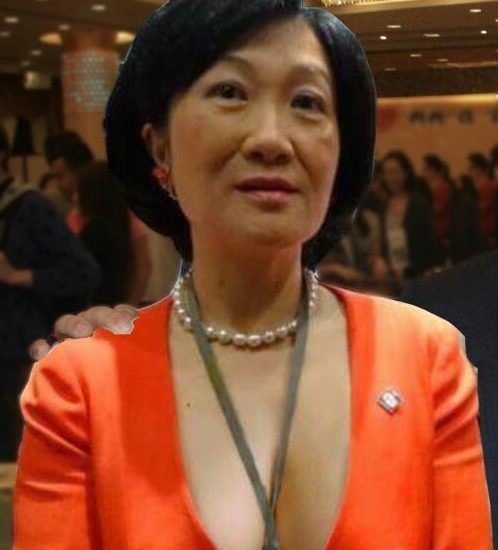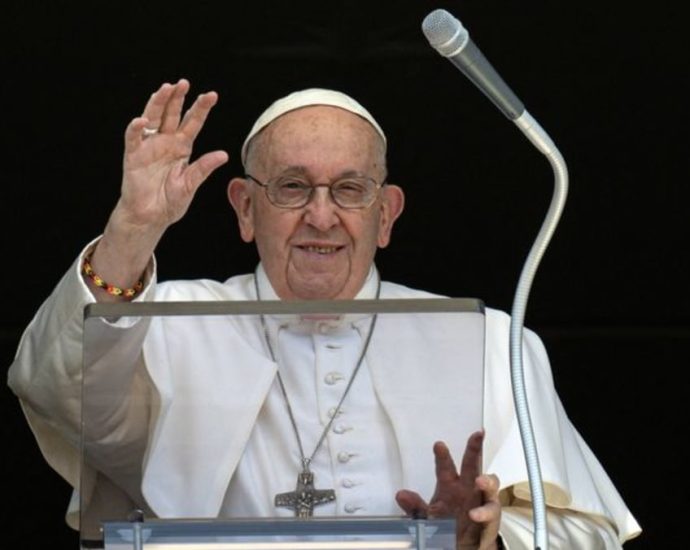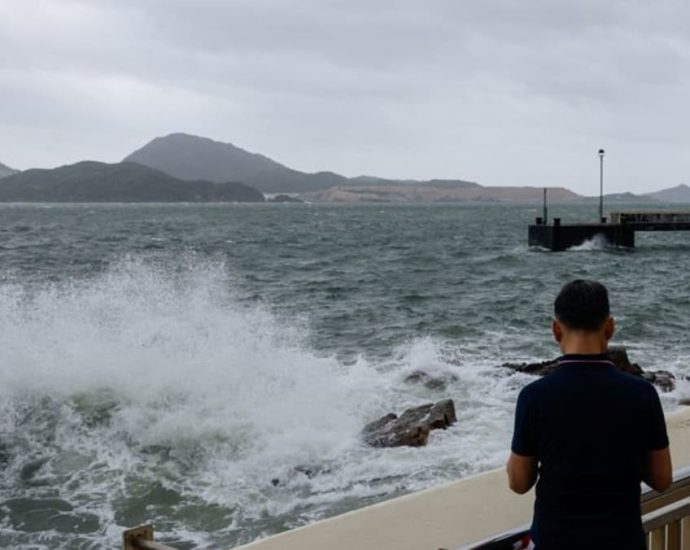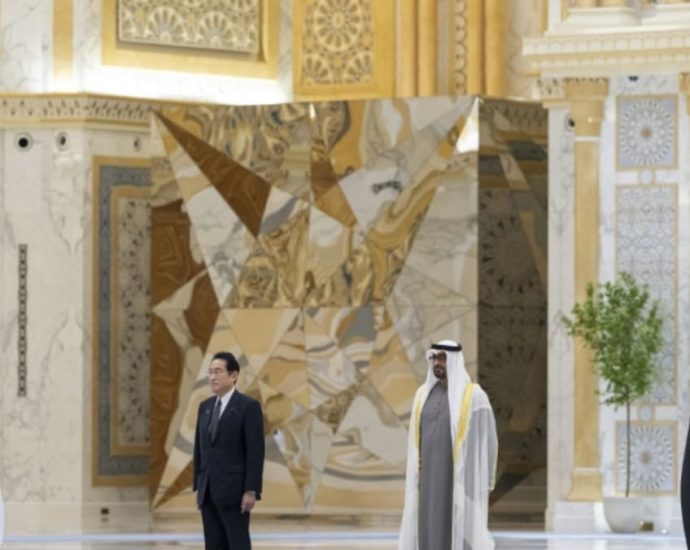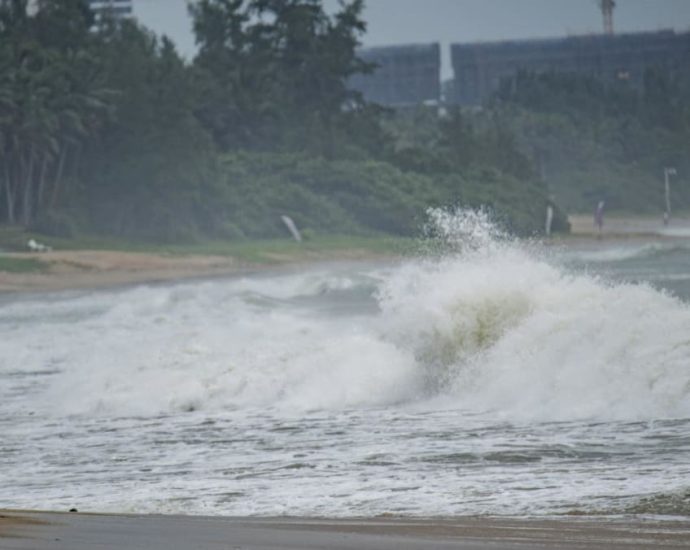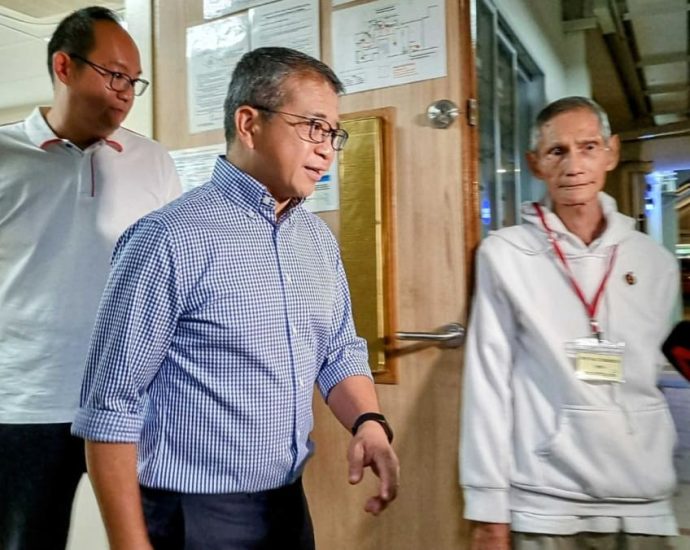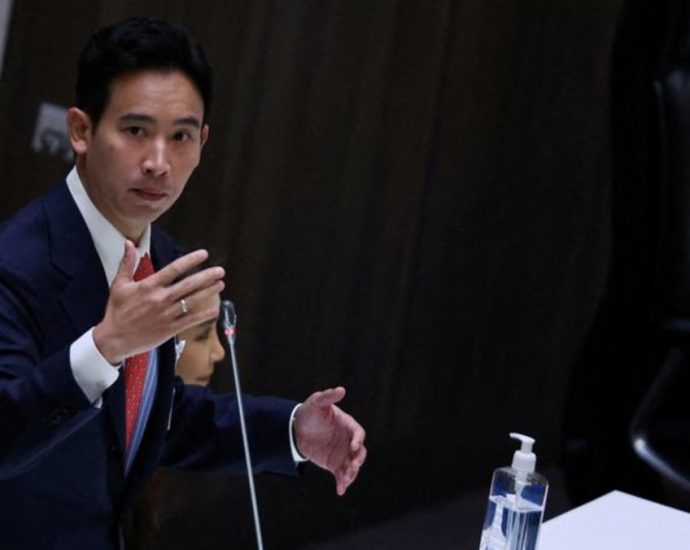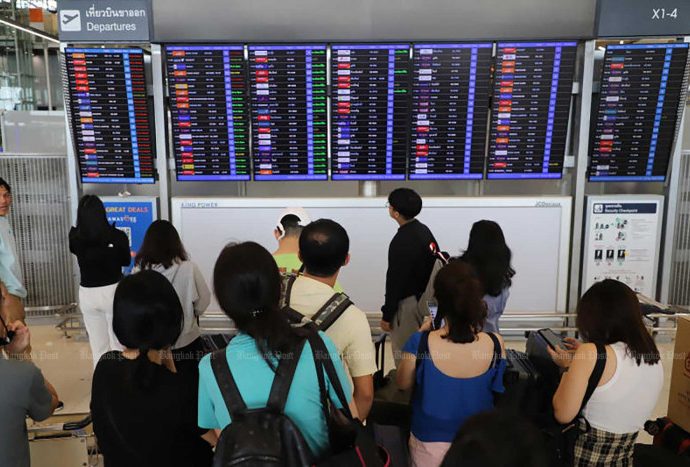Pita secures coalition support

MFP leader named PM pick for 2nd vote
The eight-party prospective coalition has agreed to nominate Move Forward Party (MFP) leader Pita Limjaroenrat as prime minister in the second round of voting set to take place tomorrow, amid growing doubts about his renomination.
Speaking after representatives from the eight parties met to discuss their next steps following his failure to secure enough support from parliament on July 13, Mr Pita said the bloc has agreed to nominate him once again.
He also insisted his renomination does not contravene any parliamentary regulation, as several senators have argued that doing so would be a violation of Article 41 of the House’s regulations. The issue will be discussed today at a meeting of senators and MP whips called by House speaker Wan Muhamad Noor Matha.
Mr Pita said he expects to receive more votes from senators who had been absent in the first voting session. He also dismissed reports that the MFP had approached other parties to join its coalition.
The MFP leader admitted his stance on Section 112 of the Criminal Code, also known as the lese majeste law, is complicating his bid for the premiership, as many senators and some MPs are using it as an excuse not to back his nomination.
That said, he said he has no intention of backtracking on his campaign pledges just to secure the role of premier.
Mr Pita also said that he is ready to step aside if he fails to get the required support from parliament in the second round of voting.
When asked to elaborate on MFP’s plan to amend Section 272 of the charter to remove the senators’ power to co-select the prime minister, he said the move is an MFP initiative, not the coalition’s.
Pheu Thai secretary-general Phumtham Wechayachai said the seven coalition parties have agreed to give the MFP another chance and that, at this point, the bloc does not have a contingency plan if Mr Pita still fails.
Meanwhile, Senate whip Somchai Sawangkarn said he will inform parliament of Article 41, which prohibits a motion that has been rejected by parliament from being resubmitted in the same session.
“If another candidate is nominated, it’s considered a new motion,” he added.
Senator Seree Suwanpanont echoed Mr Somchai’s opinions, saying if Mr Pita is renominated for the prime minister’s post, it would lead to an extensive debate about the clause.
Mr Seree urged other political parties which have submitted their prime ministerial candidates to the Election Commission to nominate their candidates for consideration.
Senator Kittisak Rattanawaraha said yesterday the eight coalition parties had a decision to make because the MFP has made it clear that it would not back down on reforming the lese majeste law.
He called the MFP’s policy divisive and said under the current political circumstances, Pheu Thai should be allowed to form a coalition government without the MFP.
He said the social media campaign by MFP supporters to pressure senators to vote for Mr Pita would not change their minds, especially since many supporters have resorted to online bullying and harassment.
In a related development, political observer Ruangkrai Leekitwatthana yesterday lodged a petition with Mr Wan urging him to look at whether Mr Pita is qualified to be nominated as prime minister.
Mr Ruangkrai cited the EC’s decision to seek a Constitutional Court ruling on the MFP leader’s MP status. The EC found that Mr Pita held shares in iTV, a media company, at the time he registered his electoral candidacy, which is a violation of sections 101(6) and 98(3) of the constitution.
According to Mr Ruangkrai, the alleged violation would make Mr Pita ineligible to run as a prime ministerial candidate.
Speaking before the eight-party meeting, MFP deputy leader Sirikanya Tansakun said the party is still pinning its hopes on its bid to amend Section 272 of the charter if Mr Pita fails to secure enough support in the second round of voting tomorrow.
She said it would take only two to three weeks to know the result of MFP’s plan to amend Section 272. If these two efforts fail, the party would step aside and let Pheu Thai take the lead in forming a coalition, she said, adding the party would not go back on its word on the lese majeste law issue.
Beijing growls as Hong Kong fails to lure investors
Why does it matter that a Chinese blogger who uses the pen name “Jing Haihou” says local officials and lawmakers must take actions to maintain Hong Kong’s unique advantage of “two systems” in order to attract investments and encourage those who left the city to come back?
What makes that important is that Jing is understood to be representing the view of Beijing’s political elites when he blasts the Hong Kong government for overzealously enforcing the 2020 National Security Law and thus scaring off foreign investors.
The timing is also significant: Jing’s comments follow the July 6-9 visit to Beijing of US Treasury Secretary Janet Yellen, a dovish US politician. Washington and Beijing had resumed high-level trade talks after US Secretary of State Antony Blinken met Chinese President Xi Jinping on June 20.
“Since the implementation of the National Security Law, some people, including officials and lawmakers, have used the law as a trump card to promote their policies and a shield to hide their responsibility for policy failures,” Jing says.

He says some officials implemented the government’s decisions without deep thought – for example, by removing Chinese writer Lu Xun’s books from public libraries and banning non-political films. Lu Xun is the pen name of China’s liberal novelist Zhou Shuren (1881-1936), whose books are still permitted to be circulated in mainland China.
Jing complains that some people don’t listen to rational criticism, have leftist mindsets and always mix up “contradictions among the people” and “contradictions between ourselves and the enemy.” He says the misuse of the National Security Law is not what the central government wants to see under its principle of “patriots administering Hong Kong.”
He also says connecting Hong Kong with the outside world is a prerequisite for China to keep developing while maintaining a diversified culture. A global network is the only way that Hong Kong can strengthen its status, he says, concluding that “diversification means more gold,” a reference to foreign investments.

Jing’s comments were reported by the Singtao Daily, a pro-Beijing Hong Kong newspaper, on July 11. Pro-Beijing politicians in Hong Kong were initially shocked by those comments. But they then said they agreed with them – a sign of recognition that Jing’s views reflect those of Beijing’s top leaders.
Regina Ip, convenor of the Executive Council, also said Hong Kong should avoid losing its uniqueness or becoming just another city like many on the mainland.
Lau Siu-kai, an advisor of the Chinese Association of Hong Kong and Macau Studies, said safeguarding national security remains Hong Kong’s top priority but the government needs to take care of foreign investors’ and local people’s concerns about freedoms and human rights.
Sam Ng, a Hong Kong commentator, said Beijing now realizes that tight control on Hong Kong does not fulfill its goal to attract foreign investments. However, Ng said, it has remained unclear what Beijing will do next.
In the first five months of this year, China’s foreign direct investment fell 5.6% from a year ago. For decades, most foreign investments have been entering mainland China through Hong Kong.
Hong Kong’s trade offices
Even if Beijing now reviews its Hong Kong policy, it may be a bit too late as the US Congress is a step closer to approving a bill that will grant the US government the power to review the status of or even shut down the Hong Kong economic and trade offices (HKETOs) in Washington, DC, New York and San Francisco.
In February, US Senators Marco Rubio and Jeff Merkley reintroduced the HKETO Certification Act to reevaluate the United States’ recognition of HKETOs. US Congressmen Chris Smith and Jim McGovern also introduced companion legislation in the US House of Representatives.
On July 13, the Senate Committee on Foreign Relations passed the Act, which needs to be approved by both houses of Congress and signed by the president to become law.
“Hong Kong is unfortunately neither autonomous nor democratic as China’s genocidal regime continues to undermine the city’s basic freedoms,” Rubio said in a statement. “HKETOs no longer merit diplomatic immunities in our nation. As such, their privileges must be revoked.”
“The sad reality,” said Merkley, “is that the HKETOs now serve as propaganda arms of the Chinese government. Committee passage of this bipartisan bill is a strong step forward in defense of the people of Hong Kong.”
The Hong Kong government strongly condemned the US Senate Committee for passing the Act and interfering in the affairs of Hong Kong. It said it will continue to implement the National Security Law resolutely, fully and faithfully.
“A small number of politicians in the US ignored Hong Kong people’s unanimous demands for stability, progress and development and the international community’s common interests in Hong Kong,” an unnamed spokesperson at the commissioner’s office of China’s Foreign Ministry in Hong Kong said on July 14.
“They deliberately passed evil laws related to Hong Kong and politicized economic and trade issues to serve their own political self-interest,” the spokesperson said. “This conceals their evil intention of ‘containing China with Hong Kong,’ and exposing their bullying and hegemony.”
The current National Security Law forbids acts of secession, subversion, terrorism and collusion with foreign forces.
Last month, Chief Executive John Lee said Hong Kong will pass another security law in accordance with the Basic Law’s Article 23 this year or in 2024. The new law will cover acts of treason, sedition, theft of state secrets and foreign bodies’ conducting political activities in the city.
In early June, Beijing called on the US to allow Lee to attend the APEC summit that will be held in San Francisco later this year. Lee was sanctioned by the US as he had led the police force’s crackdown on the anti-extradition protests in late 2019 and early 2020.
Read: China’s June exports hit by weak Western demand
Follow Jeff Pao on Twitter at @jeffpao3
Pope visit to Mongolia will thrill tiny Catholic community, cardinal says
VATICAN CITY: The head of one of the world’s smallest national Catholic communities – Mongolia with 1,450 members – said on Monday that Pope Francis’ visit there will show how far it has come since locals watched “these funny foreigners praying”. Cardinal Giorgio Marengo, an Italian who administers the ChurchContinue Reading
Typhoon Talim expected to move to South China Sea’s Beibu Gulf: Xinhua
China’s National Meteorological Center expects Typhoon Talim to move to the Beibu Gulf in the South China Sea, and says it may make a second landfall in the coastal area of Guangxi Zhuang Autonomous Region on Tuesday morning (Jul 18), state media Xinhua reported. Typhoon Talim became the first typhoonContinue Reading
Clean energy on agenda of Japan PM talks in UAE ahead of COP28
DUBAI: Japanese Prime Minister Fumio Kishida on Monday (Jul 17) discussed clean energy cooperation with top officials during a visit to the UAE, host of this year’s UN climate talks. Kishida’s visit to the United Arab Emirates, which will host COP28 in November-December, is part of the first Gulf tourContinue Reading
Typhoon Talim lands in southern China, flights and trains cancelled
Markets in Hong Kong halted trade for the day as the city’s observatory put up a storm signal for Talim, and all court hearings in the city were adjourned. China’s meteorological centre forecast gale force winds in seas near southern provinces and regions and exceptionally heavy rains of 250mm to 280mm on theContinue Reading
Swatch sues Malaysia over Pride watch seizures
 Swatch
SwatchSwiss watchmaker Swatch says it has begun legal proceedings against the Malaysian government for seizing LGBTQ-themed watches from its stores.
The move comes after officials impounded 172 watches from its rainbow-coloured Pride collection, on sale at shopping malls across Malaysia.
Swatch wants damages and the return of the watches, worth $14,000 (£10,700).
Homosexual activity is illegal in Malaysia under both secular and religious laws.
It is punishable by a prison sentence or corporal punishment.
Swatch filed its lawsuit last month at the High Court in Kuala Lumpur. The case is expected to be heard later this week.
The Malaysian authorities said the watches were confiscated in May by the home affairs ministry’s law enforcement unit because they featured “LGBT elements”.
But Swatch said in its lawsuit that the watches were “not in any way capable of causing any disruption to public order or morality or any violations of the law”.
The firm said its trading reputation had been damaged by the seizures, adding that its “business and trading figures also suffered in the immediate aftermath of the seizure for some time”.
In its promotional campaign for the Pride-themed watches, Swatch describes them as “loud, proud, uplifting and bursting with meaning”.
The firm refers to the Pride flag as “a symbol of humanity that speaks for all genders and all races”.
In its lawsuit, Swatch said the watches “did not promote any sexual activity, but merely a fun and joyous expression of peace and love”.
The lawsuit names the home affairs ministry and the government of Malaysia as respondents.
Home Affairs Minister Saifuddin Nasution Ismail has yet to comment publicly on the matter.
-
-
3 September 2018
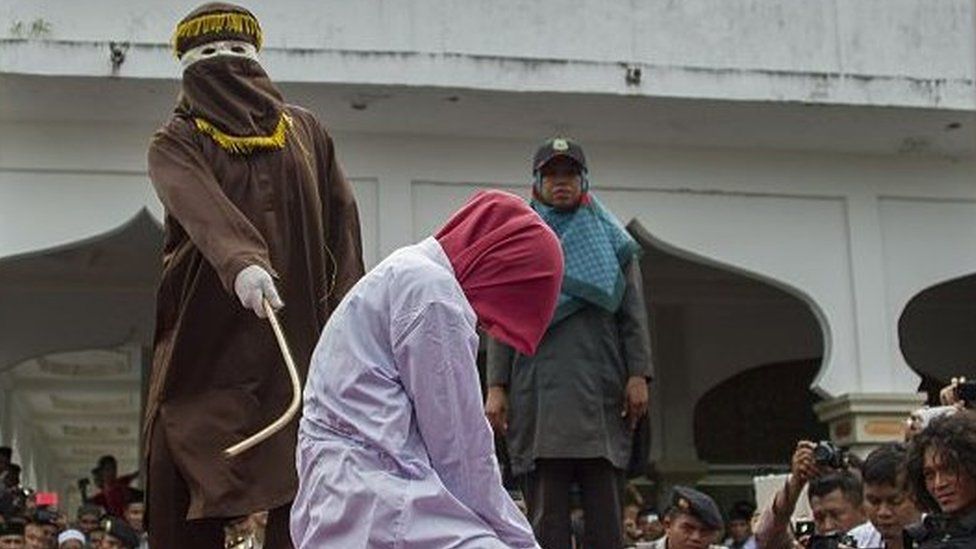
-
Marine Parade, Tampines GRC residents will continue to be cared for, say ministers following MP resignations
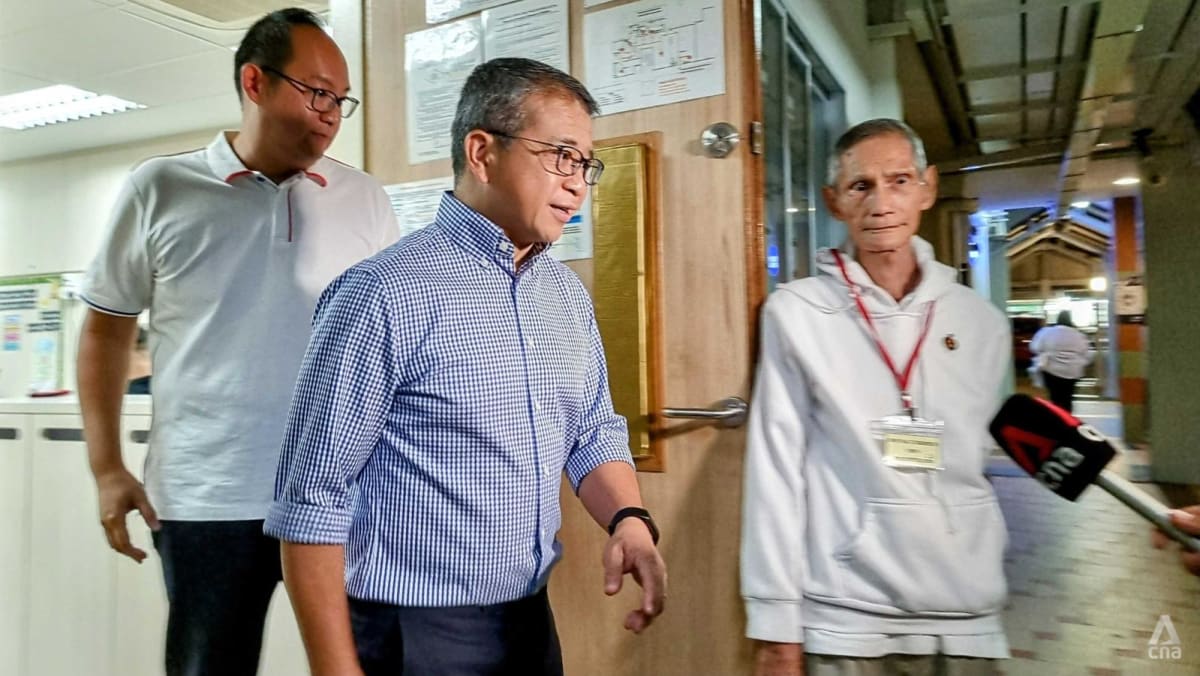
Meanwhile, Minister for Social and Family Development Masagos Zulkifli and the rest of the Tampines MPs, as well as Senior Minister of State for Health Janil Puthucheary, were spotted coming out from a private meeting at the PCF Sparkletots Preschool location at Tampines West on Monday night.
Speaking to reporters before heading to his Meet-the-People session, Mr Masagos wanted to reassure residents that their needs would continue to be met.
Fellow MP for Tampines GRC Mr Desmond Choo will replace Ms Cheng Li Hui as the chairman for Tampines Town Council, while Mr Baey Yam Keng will become vice-chairman of the town council.
Dr Koh Poh Koon is the other Tampines GRC MP.
“The Tampines team will continue to run and provide service to our residents without any change in the quality of the services. Town council will run the services as usual,” Mr Masagos said.
“The grassroots will continue to run services to keep the community together, and of course, Our Tampines Hub will execute all the plans for our residents as we’ve done for the last few years. So it’s only the filling in and doubling up on the positions (that has changed).”
Ms Cheng, who had been MP for Tampines since her political debut in 2015, said in her letter to the Prime Minister that she was “very sorry to be resigning in these circumstances”.
“Li Hui has been serving our residents and we appreciate her helming the Tampines Town Council during her time with us,” wrote Mr Masagos in a Facebook post on Monday.
Under the leadership of Mr Choo and Mr Baey, “the Town Council will continue to operate smoothly and uninterrupted”, he added.
“Tampines GRC residents can already visit or write to any of us if they need assistance.”
Thai alliance reaffirms backing for Pita’s PM bid
BANGKOK: An eight-party alliance seeking to form Thailand’s next government on Monday (Jul 17) reaffirmed its backing for Pita Limjaroenrat to become premier, Pita said on Monday, despite his defeat last week in a parliamentary vote. Pita, leader of election winners Move Forward, failed in his initial bid to winContinue Reading
Swine fever prompts sausage alert

Stash found aboard flight from China
PUBLISHED : 17 Jul 2023 at 20:34
Air passengers were on Monday warned against bringing a particular type of illegal Chinese-branded sausage into the country due to its tendency to spread the African Swine Fever (ASF) virus.
The alert over the safety of the meat, popular among Chinese-style hotpot restaurants, came in a Facebook post by the Department of Livestock Development’s (DLD) Quarantine and Inspection Canine Unit of Suvarnabhumi airport.
According to the post, one of their detection dogs had led them to seize 100 illegal sausages in the luggage hold of a Hainan Airlines flight that had departed from Meilan International Airport in Haikou County, China, on July 13.
The pork sausages in the probe were sold under the name Shuanghui, known to Thai consumers as Lion Brand, and produced by a manufacturer in Henan province. They became especially favoured by consumers following the popularity of Chinese-style hotpot restaurants in Thailand.
Lertchai Lertwut, deputy secretary-general of the Thai Food and Drug Administration (FDA), said none of the sausage brand importers had registered with the FDA, and that is why the packaging does not display a food serial number or legal label.
The lot of defective sausages, 8.5 kilogrammes in total and worth at least 2,000 baht, was immediately seized as a swine fever epidemic has been detected in the country of origin.
Sophat Chawankul, the DLD deputy director-general, said elevated security procedures have been in place since 2018, when rising cases of ASF were first reported in Asia.
At present, those who illegally import livestock and livestock products face up to two years in prison, fines of up to 200,000 baht, or both, he added.
On the FDA’s side, Mr Lertchai said that the importer would be accused of unauthorised food product importation.
They would be detained for no more than three years and pay no more than 30,000 baht in fines.
The sausages were also sent for additional analysis and ahead of charges being filed against the importer after results come back, according to Mr Lertchai.


